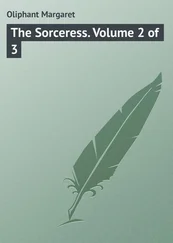Margaret Oliphant - At His Gates. Volume 3
Здесь есть возможность читать онлайн «Margaret Oliphant - At His Gates. Volume 3» — ознакомительный отрывок электронной книги совершенно бесплатно, а после прочтения отрывка купить полную версию. В некоторых случаях можно слушать аудио, скачать через торрент в формате fb2 и присутствует краткое содержание. ISBN: , Жанр: foreign_prose, на английском языке. Описание произведения, (предисловие) а так же отзывы посетителей доступны на портале библиотеки ЛибКат.
- Название:At His Gates. Volume 3
- Автор:
- Жанр:
- Год:неизвестен
- ISBN:http://www.gutenberg.org/ebooks/47620
- Рейтинг книги:5 / 5. Голосов: 1
-
Избранное:Добавить в избранное
- Отзывы:
-
Ваша оценка:
- 100
- 1
- 2
- 3
- 4
- 5
At His Gates. Volume 3: краткое содержание, описание и аннотация
Предлагаем к чтению аннотацию, описание, краткое содержание или предисловие (зависит от того, что написал сам автор книги «At His Gates. Volume 3»). Если вы не нашли необходимую информацию о книге — напишите в комментариях, мы постараемся отыскать её.
At His Gates. Volume 3 — читать онлайн ознакомительный отрывок
Ниже представлен текст книги, разбитый по страницам. Система сохранения места последней прочитанной страницы, позволяет с удобством читать онлайн бесплатно книгу «At His Gates. Volume 3», без необходимости каждый раз заново искать на чём Вы остановились. Поставьте закладку, и сможете в любой момент перейти на страницу, на которой закончили чтение.
Интервал:
Закладка:
Aunt Mary thus had the last word, and retired with flying colours and in very high feather from the conflict; for at this moment the Drummonds arrived, and Dr Maurice rushed down-stairs to meet them. The old aunt was a personage very well worth knowing, though she has very little to do with this history, and it was with mingled curiosity and amusement that she watched for the entrance of Mrs Drummond and her daughter. It would be a very wise step for him anyhow to marry, she thought. The Maurice family were very well off, and there were not many young offshoots of the race to contend for the doctor's money. Was he contemplating the idea of a wife young enough to be his daughter? or had he really the good sense to think of a woman about his own age? Aunt Mary, though she was a woman herself, and quite ready to stand up for her own side, considered Helen Drummond, under forty, as about his own age, though he was over fifty. But as the question went through her mind, she shook her head. She knew a great many men who had made fools of themselves by marrying, or wishing to marry, the girl young enough to be their daughter; but the other class who had the good sense, &c., were very rare indeed.
There was, however, very little light thrown upon the subject by Aunt Mary's observations that evening. Mrs Drummond was very grave, almost sad; for the associations of the house were all melancholy ones, and her last visit to it came back very closely into her memory as she entered one room – the great old gloomy dining-room – where Norah, a child, had been placed by Dr Maurice's side at table on that memorable occasion, while she, unable even to make a pretence of eating, sat and looked on. She could not go back now into the state which her mind had been in on that occasion. Everything was calmed and stilled, nay, chilled by this long interval. She could think of her Robert without the sinking of the heart – the sense of hopeless loneliness – which had moved her then. The wound had closed up: the blank, if it had not closed up, had acquired all the calmness of a long-recognized fact. She had made up her mind long since that the happiness which she could not then consent to part with, was over for her. That is the great secret of what is called resignation: to consent and agree that what you have been in the habit of calling happiness is done with; that you must be content to fill its place with something else, something less. Helen had come to this. She no longer looked for it – no longer thought of it. It was over for her, as her youth was over. Her heart was tried, not by active sorrow, but by a heavy sense of past pain; but that did not hinder her from taking her part in the conversation – from smiling at Norah's sallies, at her enthusiasm, at all the height of her delight in the pleasure Dr Maurice promised her. Norah was the principal figure in the scene. She was surrounded on every side by that atmosphere of fond partiality in which the flowers of youth are most ready to unfold themselves. Dr Maurice was even fonder than her mother, and more indulgent; for Helen had the jealous eye which marks imperfections, and that intolerant and sovereign love which cannot put up with a flaw or a speck in those it cherishes. To Dr Maurice the specks and flaws were beauties. Norah led the conversation, was gay for every one, talked for every one. And the old aunt laughed within herself, and shook her head: 'He cannot keep his eyes off her; he cannot see anything but perfection in her, – but she is a mere excited child, and her mother is a beautiful woman,' said Aunt Mary to herself; 'man's taste and woman's, it is to be supposed, will be different to the end of time.' But after she had made this observation, the old lady was struck by the caressing, fatherly ways of her nephew towards this child. He would smooth her hair when he passed by her; would take her hand into his, unconsciously, and pat it; would lay his hand upon her shoulder; none of which things he would have ventured to do had he meant to present himself to Norah as her lover. He even kissed her cheek, when she said good-night, with uncontrollable fondness, yet unmistakable composure. What did the man mean?
He had sketched out a very pretty programme for them for their three days. Next evening they were to go to the theatre; the next again, to an opera. Norah could not walk, she danced as she went up-stairs. 'The only thing is, will my dress do?' she said, as she hung about her mother in the pretty fresh room, new-prepared, and hung with bright chintz, in which Mrs Drummond was lodged. Could it have been done on purpose? For certainly the other rooms in the house still retained their dark old furniture; dark-coloured, highly-polished mahogany, with deep red and green damask curtains – centuries old, as Norah thought. Mrs Drummond was surprised, too, at the aspect of this room. She was more than surprised, she was almost offended, by the presence of the old aunt as chaperon. 'Does the man think I am such a fool as to be afraid of him?' she wondered, with a frown and a smile, but gave herself up to Norah's pleasure, rejoicing to see that the theatre and the opera were strong enough to defeat for the moment and drive from the field both Cyril and Ned. And the next day, and the next, passed like days of paradise to Norah. She drove about in Dr Maurice's carriage, and laughed at her own grandeur, and enjoyed it. She called perpetually to her mother to notice ladies walking who were like themselves. 'That is what you and I should be doing, if it were not for this old darling of a doctor! trudging along in the sun, getting hot and red – '
'But think, you little sybarite, that is what we shall be doing to-morrow,' cried Helen, half amused and half afraid.
'No, the day after to-morrow,' said Norah, 'and then it will be delightful. We can look at the people in the carriages, and say, "We are as good as you; – we looked down upon you yesterday." And, mamma, we are going to the opera to-night!'
'You silly child,' Helen said. But to eyes that danced so, and cheeks that glowed so, what could any mother say?
It was the after-piece after that opera, however, which was what neither mother nor daughter had calculated upon, but which, no doubt, was the special cause of their invitation, and of the new chintz in the bed-rooms, and of all the expense Dr Maurice had been at. Norah was tired when they got home. She had almost over-enjoyed herself. She chatted so that no one could say a word. Her cheeks were blazing with excitement. When the two elder people could get a hearing, they sent her off to bed, though she protested she had not said half she had to say. 'Save it up for to-morrow,' said Dr Maurice, 'and run off and put yourself to bed, or I shall have you ill on my hands. Mrs Drummond, send her away.'
'Go, Norah, dear, you are tired,' said Helen.
Norah stood protesting, with her pretty white cloak hanging about her; her rose-ribbons a little in disorder; her eyes like two sunbeams. How fondly her old friend looked at her; with what proud, tender, adoring, fatherly admiration! If Aunt Mary had not been away in bed, then at least she must have divined. Dr Maurice lit her candle and took her to the door. He stooped down suddenly to her ear and whispered, 'I have something to say to your mother.' Norah could not have explained the sensation that came over her. She grew chill to her very fingers' ends, and gave a wondering glance at him, then accepted the candle without a word, and went away. The wonder was still in her eyes when she got up-stairs, and looked at herself in the glass. Instead of throwing off her cloak to see how she looked, as is a girl's first impulse, she stared blankly into the glass, and could see nothing but that surprise. What could he be going to talk about? What would her mother say?
Helen had risen to follow her daughter, but Dr Maurice came back, having closed the door carefully, and placed a chair for her. 'Mrs Drummond, can you give me ten minutes? I have something to say to you,' he said.
Читать дальшеИнтервал:
Закладка:
Похожие книги на «At His Gates. Volume 3»
Представляем Вашему вниманию похожие книги на «At His Gates. Volume 3» списком для выбора. Мы отобрали схожую по названию и смыслу литературу в надежде предоставить читателям больше вариантов отыскать новые, интересные, ещё непрочитанные произведения.
Обсуждение, отзывы о книге «At His Gates. Volume 3» и просто собственные мнения читателей. Оставьте ваши комментарии, напишите, что Вы думаете о произведении, его смысле или главных героях. Укажите что конкретно понравилось, а что нет, и почему Вы так считаете.












